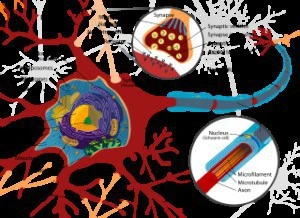Research Shows Acupuncture Can Benefit Both Cognitive Performance and Neural Plasticity
As a former brain scientist I’m well aware of the importance of brain functions and inter-brain connectivity and how that relates to overall physical and mental health. While the function of individual brain areas is important, the way different areas of the brain communicate with each other is equally, if not more important. Neural plasticity refers to the ability of the brain to establish new connections, both physical and functional, between brain areas. As we age neural plasticity is thought to be less, well elastic, and therefore our brains are less responsive to making adaptations and changes that are necessary to maintain optimal mental and physical health.
 Many diseases and disorders result from different areas of the brain failing to communicate properly. Aging related disorders such as cognitive impairment, dementia, and memory loss, often have no structural component (no brain damage, no interruption of neurotransmitter creation, etc.) and are instead the result of a breakdown of the communication between different brain areas. This is the result of a breakdown of our neural plasticity. Therefore to treat these types of disorders we need to be able to restore the communication between the affected brain areas, or in effect restore our neural plasticity.
Many diseases and disorders result from different areas of the brain failing to communicate properly. Aging related disorders such as cognitive impairment, dementia, and memory loss, often have no structural component (no brain damage, no interruption of neurotransmitter creation, etc.) and are instead the result of a breakdown of the communication between different brain areas. This is the result of a breakdown of our neural plasticity. Therefore to treat these types of disorders we need to be able to restore the communication between the affected brain areas, or in effect restore our neural plasticity.
A recent study from the Journal of Neural Regeneration Research found that acupuncture treatment resulted in an improvement of cognitive function and furthermore fMRI brain imaging showed corresponding increases in the communication of brain areas associated with higher level cognitive functioning and memory. The study split patients into a sham acupuncture and a real acupuncture groups. It is important to note the sham acupuncture was done by needling non acupuncture points - often sham acupuncture uses the same acupuncture points but doesn’t insert the needle which is basically acupressure and therefore not an effective control. Brain scans and cognitive assessment tests were taken before the study began and again after 4 weeks of treatment. Those in the true acupuncture group showed both a significant increase in their cognitive testing as well as increases the communication between areas of the brain involved in higher level cognition. Those in the sham acupuncture group showed no significant performance increase and no changes in the communication between areas of the brain.
There is an important difference between showing acupuncture can influence brain activity (for example this study) while the needles are in versus establishing that acupuncture can have a longer lasting influence on the way the brain functions. Showing that acupuncture treatment can influence the communication between brain areas both helps to establish that acupuncture does in fact have a lasting effect and the mechanism by which that effect is established - by restoring neural plasticity.
tag @yinyanghouse for questions/comments